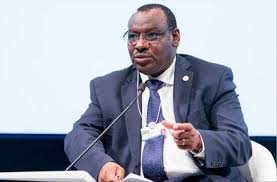By Claver Gatete, Executive Secretary of the Economic Commission for Africa.
While 600 million Africans still lack access to electricity, the continent faces a major energy deficit, especially in rural areas. To achieve the goal of universal access to electricity by 2030, between 70 and 80 million people would need to be connected each year. However, Africa, which represents 17% of the world’s population, only produces 3% of global electricity. This “energy poverty” hinders industrialization, limits progress in health and education, and hampers economic transformation, even as the continent exports uranium and other essential resources for electricity production in other regions of the world.
Despite significant progress in some countries, the pace of progress remains insufficient. Hence the urgent need for an ambitious energy transition, fully integrating nuclear energy, tailored to African realities and potential.
Breaking prejudices through experience and innovation
There are many legitimate concerns and reservations: security risks, high costs, past accidents, waste issues… and lingering memories of Chernobyl and Fukushima. However, there are examples to prove the viability of nuclear energy. The South African Koeberg power plant has been operating safely for 40 years. Experts also point out that nuclear energy has the lowest mortality rate per kilowatt-hour among all major energy sources, including renewables. Next-generation reactors, such as Westinghouse’s AP1000, are equipped with passive safety systems capable of automatically shutting down in case of failure.
Several countries around the world have successfully embraced nuclear energy. South Korea, with its 25 reactors, has transitioned from an importer to an exporter of nuclear energy, aiming for 30% nuclear electricity production by 2030. France, a pioneer in civil nuclear power, derives 70% of its electricity from nuclear sources, ensuring a stable grid and some of the lowest prices in Europe. Bangladesh, with a GDP per capita similar to that of Kenya, is building its first reactor with Russia’s assistance.
A continental movement already underway
Projects are multiplying across the African continent. Egypt is constructing four 1,200 MW reactors in El Dabaa, a $30 billion investment to support its industrial development. Ghana is collaborating with NuScale Power on small modular reactors (SMRs) capable of powering both mines and urban areas. Seven countries (Egypt, Rwanda, Ghana, Uganda, South Africa, Nigeria, Zambia) are now engaged in implementing or expanding their nuclear programs. Others – including Niger, Kenya, Tunisia, Morocco, Ethiopia, Tanzania, Namibia, DRC, Senegal, Algeria, and Zimbabwe – are working on integrating nuclear energy into their energy strategies.


